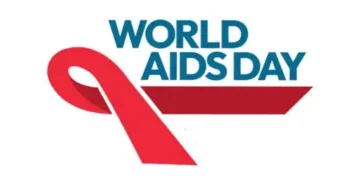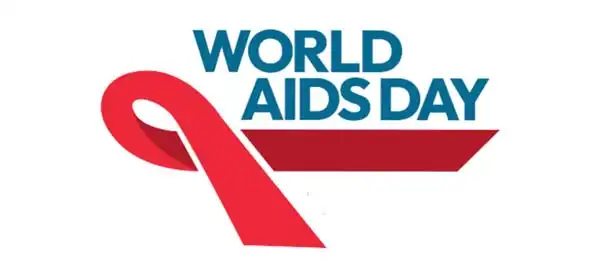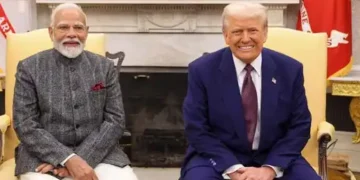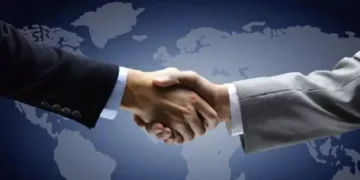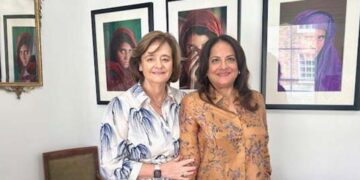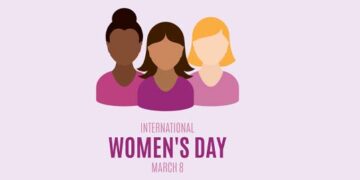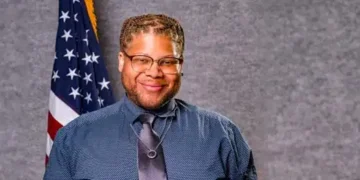 This World AIDS Day, on December 1st, serves as a poignant reminder of the ongoing global fight against HIV/AIDS. This year, as we enter the holiday season, it is particularly fitting to highlight the efforts of global organizations, business leaders, and cultural initiatives that are stepping up to make a difference in this ongoing battle.
This World AIDS Day, on December 1st, serves as a poignant reminder of the ongoing global fight against HIV/AIDS. This year, as we enter the holiday season, it is particularly fitting to highlight the efforts of global organizations, business leaders, and cultural initiatives that are stepping up to make a difference in this ongoing battle.
The Joint United Nations Programme on HIV/AIDS (UNAIDS) stands at the forefront of the global response to HIV/AIDS. Established in 1996, UNAIDS leads and inspires the world in achieving universal access to HIV prevention, treatment, care, and support. The organization provides strategic direction, advocacy, coordination, and technical support to catalyze and connect leadership from governments, the private sector, and communities. UNAIDS unites the efforts of 11 UN organizations and works closely with global and national partners to achieve its mission.
Another pivotal player in the global HIV/AIDS response is the Global Fund to Fight AIDS, Tuberculosis and Malaria. Founded in 2002, the Global Fund is a partnership designed to accelerate the end of these epidemics. It mobilizes and invests more than US$4 billion a year to support programs run by local experts in over 100 countries. The Global Fund provides 30% of all international financing for HIV programs and has invested over $24 billion in programs aimed at preventing and treating HIV/AIDS as of mid-2022.
The International AIDS Society (IAS) plays a crucial role in convening, educating, and advocating for a world where HIV no longer poses a threat to public health. Founded in 1988, IAS is the world’s largest association of HIV professionals, with members from more than 170 countries. The organization hosts major conferences such as the International AIDS Conference and the IAS Conference on HIV Science, which bring together researchers, policymakers, and advocates to share knowledge and strategies.
The World Health Organization (WHO) contributes significantly to the global HIV response through its Department of Global HIV, Hepatitis and Sexually Transmitted Infections Programmes. WHO develops evidence-based guidelines and provides technical support to address public health gaps related to these diseases. Their efforts are crucial in shaping global health policies and strategies related to HIV/AIDS.
Frontline AIDS is another key player in this fight. This global partnership comprises over 60 partners across more than 100 countries and focuses on areas most affected by HIV. Frontline AIDS works on multiple fronts: advocating for increased investment in HIV prevention, integrating services with other health services, fighting for human rights and gender equality, and strengthening community health systems.
In addition to these organizations, many businesses have taken significant strides in supporting HIV/AIDS initiatives. The pharmaceutical industry has been particularly active in this regard. Companies like Gilead Sciences have developed innovative treatments that have transformed HIV care. Gilead’s Chairman and CEO, Daniel O’Day, emphasizes a holistic approach that combines breakthrough science with accessible medical care.
Tech companies are also making significant contributions. Microsoft has leveraged its technological expertise through initiatives like AI for Health, which utilizes artificial intelligence to accelerate medical research related to HIV/AIDS. These efforts not only enhance research capabilities but also improve access to information and resources for those affected by the disease.
Retail giants have also found innovative ways to contribute. MAC Cosmetics’ VIVA GLAM campaign has raised over $500 million for HIV/AIDS causes since its inception in 1994. This initiative not only raises funds but also increases awareness among consumers about the importance of supporting those living with HIV/AIDS.
As host of The Caring Economy podcast, I have had the privilege of speaking with numerous business leaders committed to making a positive impact on society. Their stories serve as inspiration for how the business community can address critical issues like HIV/AIDS. For instance, Crystal Barnes from ViacomCBS shared insights on how media companies can use their platforms to raise awareness about important social issues. ViacomCBS has consistently utilized its reach to educate viewers about HIV/AIDS initiatives targeting youth demographics.
The cultural sector also plays an essential role in raising awareness about HIV/AIDS. Initiatives like “A Day Without Art,” which began on December 1, 1989, serve as national days of action and mourning in response to the AIDS crisis. On this day, museums and galleries cover or remove artwork while providing information about HIV prevention. This powerful gesture visually represents the loss experienced within the arts community due to AIDS.
Artistic expressions have been instrumental in conveying the impact of HIV/AIDS on individuals and communities. The AIDS Memorial Quilt stands as a poignant reminder of lives lost; it includes over 50,000 panels dedicated to more than 110,000 individuals who died from AIDS-related illnesses. This quilt serves not only as a memorial but also as an educational tool that fosters understanding about the epidemic.
Grassroots organizations are also vital in providing direct services and support for those affected by HIV/AIDS. For example, A Place to Nourish Your Health (APNH), formerly known as AIDS Project New Haven, offers free testing, counseling, education, and support services directly within communities. Their work highlights how local initiatives can effectively address public health needs.
The #workingpositively campaign launched in Germany represents an innovative approach to combating stigma related to HIV/AIDS in workplaces worldwide. This initiative encourages employers to become visible role models by supporting employees living with HIV or other chronic illnesses while fostering inclusive environments.
As we commemorate World AIDS Day this December 1st and move through the holiday season, it’s crucial to consider how business leaders and cultural institutions can continue their efforts against HIV/AIDS globally. The COVID-19 pandemic has underscored the importance of collaboration across sectors—businesses must maintain their commitment to research funding while advocating for equitable access to treatment worldwide.
One ongoing challenge is ensuring that life-saving medications are affordable and accessible globally—particularly for marginalized communities disproportionately affected by HIV/AIDS. Business leaders can influence policies that promote equitable drug pricing while supporting initiatives that improve healthcare access in developing countries.
Cultural institutions can further amplify awareness by hosting exhibitions that explore the impact of HIV/AIDS or collaborating with artists living with the disease. By using their platforms for education and advocacy purposes—whether through visual arts or performance—cultural organizations can help combat stigma while promoting empathy within society.
This holiday season presents an ideal moment for reflection regarding our collective responsibility toward those impacted by this disease—whether through corporate giving programs aimed at supporting local nonprofits focused on education/prevention efforts or encouraging employee engagement around volunteer opportunities related directly back into communities affected most severely by these issues.
Ultimately—the true spirit behind both World AIDS Day & holiday celebrations alike revolves around compassion and generosity; fostering connections between people from diverse backgrounds working together towards creating healthier societies where everyone has access not just basic healthcare—but dignity and respect regardless of their status regarding any illness—including living with/affected by chronic conditions such as HVI/AIDS itself.
As we look forward into what lies ahead—it’s essential we carry forward lessons learned during these challenging times while continuing our commitment towards building inclusive economies/societies focused around caring for one another—because together—we truly can make lasting differences.
Tune into our weekly conversation and share your comments via Twitter to @Tusnik or on LinkedIn with @TobyUsnik.
